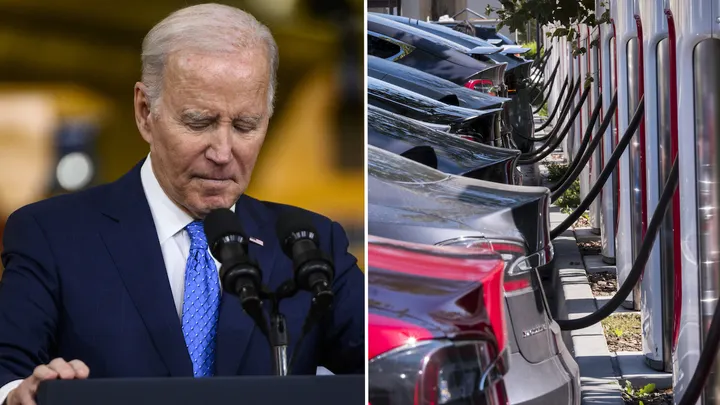In a significant win for refiners and American energy independence, the Environmental Protection Agency (EPA) has backed off from its excessive support for electric vehicles (EVs) in its Renewable Fuel Standard (RFS) program.
The EPA’s finalized program for 2023 to 2025 deviated from its previous proposal, which would have introduced a credit system to incentivize EV manufacturing and purchasing.
This move comes after a strong pushback from refiners, who argued against turning the RFS, a program designed to promote U.S. energy independence through liquid fuels, into yet another costly government subsidy for electric vehicles.
Chet Thompson, President and CEO of the American Fuel & Petrochemical Manufacturers (AFPM), praised the EPA’s decision, stating that “eRINs do not belong in the RFS and shouldn’t be resurrected.”
The proposed program would have imposed an “eRIN” obligation on petroleum refineries, forcing them to subsidize EV companies producing vehicles capable of charging with electricity generated by biofuels.
Thankfully, this burdensome obligation has been removed from the finalized program. The EPA recognized that such a system could negatively impact greenhouse gas emissions and energy security goals, and it wisely chose to discontinue it.
Republican lawmakers also played a crucial role in opposing the EPA’s excessive support for EVs. Sens. Chuck Grassley of Iowa and John Cornyn of Texas introduced legislation to block the EPA from implementing its eRIN credit system, arguing that it would undermine incentives for the expansion of ethanol and biodiesel.
The Renewable Fuel Standard is an essential program that allows the EPA to determine the required blending of biofuels with transportation fuel. Refiners failing to meet these requirements can purchase Renewable Identification Numbers (RINs) as credits.
The initial EPA proposal sought to allow EV manufacturers to sell these credits, diverting the revenue stream away from renewable fuel producers.
By rejecting the flawed eRIN proposal, the EPA has ensured the steady growth of biofuels in the nation’s fuel supply. This decision will reduce U.S. oil imports by up to 140,000 barrels per day over the next three years, boosting energy security and providing economic benefits of up to $192 million.
Today’s victory is a testament to the tireless efforts of Republicans who recognize the importance of a balanced energy policy that supports both traditional fuels and renewable sources. By rejecting excessive subsidies for electric vehicles, the EPA has taken a step in the right direction, fostering a thriving energy industry that benefits all Americans.
Source Fox News


